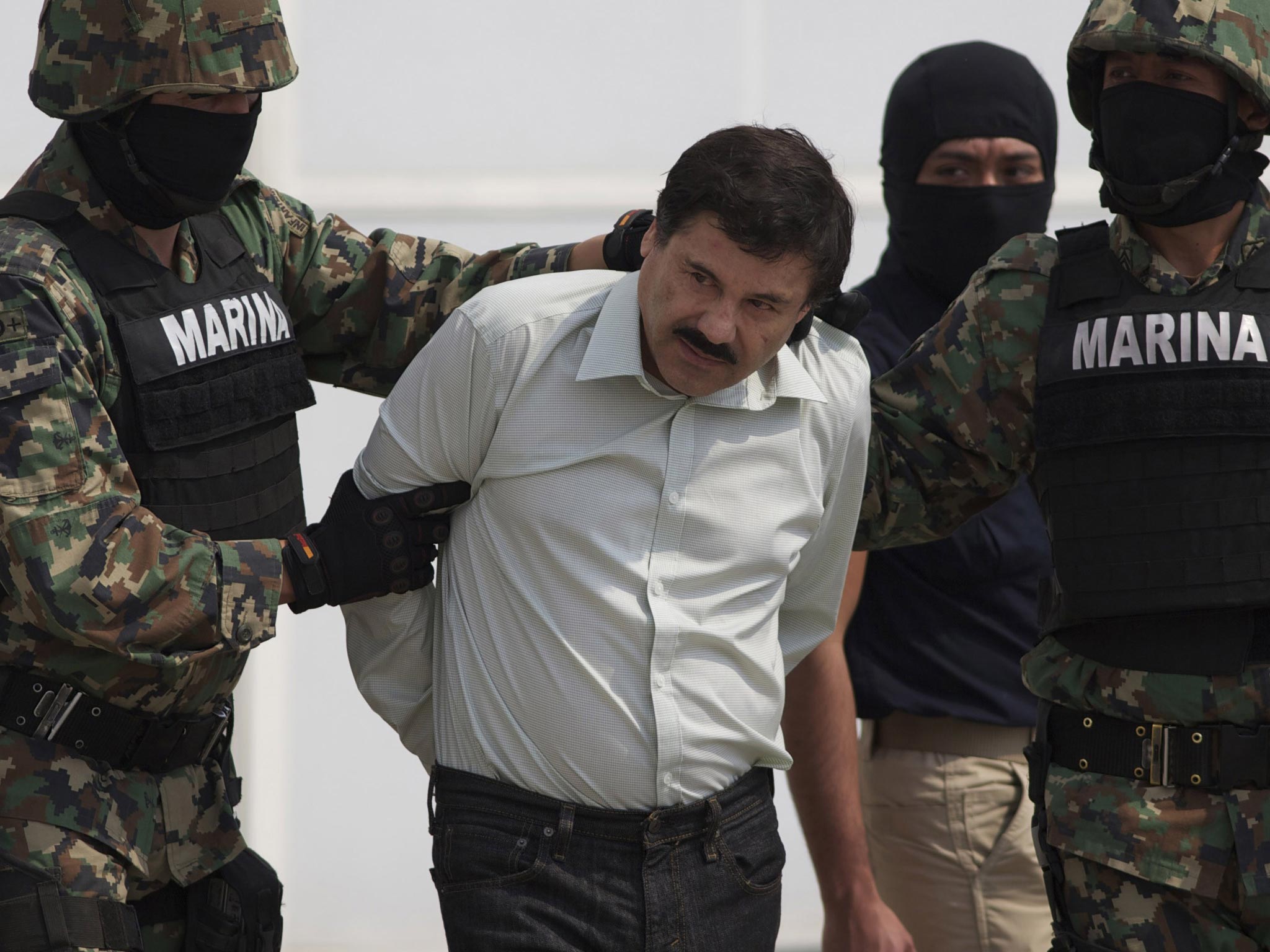The Independent's journalism is supported by our readers. When you purchase through links on our site, we may earn commission.
The never-ending story of America's war on ‘terror’ and ‘drugs’ goes on, even as the villains change
The US should look inwards to see progress in these limitless conflicts

The end is near for two of America’s enemies, or so it would seem. Last week saw the arrest of Joaquin Guzman, the leader of the Sinaloa drug cartel, and the “most-wanted criminal in the post-Bin Laden world”, according to the New York Times. Meanwhile away from the Mexican hinterland, and in the not-entirely-post-Bin Laden world, Barack Obama was debating whether or not America would assassinate by drone a US citizen prominent in the ranks of al-Qa’ida.
Two end points in sight. And yet, try as anyone might to focus on each case locally, attention is inevitably yanked past the snatching of El Chapo or possible obliteration of ‘Abdullah al-Shami’, to the wider, bleaker horizon, which is unchanged: the US is still enmeshed in wars – on ‘terror’ and ‘drugs’ – that are by definition limitless, and will only end when America itself decides to turn tail.
Detail on Guzman’s arrest presents that conclusion in bold type. US and Mexican authorities have called it a landmark case, but like the narco tunnels that undermine the US-Mexico border, look underneath the official statements and the ground is less certain. Even if a Mexican prison can hold Guzman – and it didn’t in 2001, when he escaped from a maximum-security facility – the Sinaloa cartel will keep supplying the world with drugs. “The business can run itself,” said an expert in transnational crime. “If the CEO of McDonald’s was arrested today, you could still buy a hamburger in Tokyo tomorrow.”
Much of the violence of America’s wars on ‘drugs’ and ‘terror’ is outsourced – out of sight to US citizens - but the homegrown forces that drive these conflicts rear up when one examines the fate of El Chapo and al-Shami. It is, as Hillary Clinton acknowledged, America’s "insatiable demand for illegal drugs" that lines the coffers of Guzman, one of 18 Mexican billionaires. So long as the terrifying murder-rate further down the drug supply chain stays south of Texas, change will be slow in coming, reflected George Schultz, a former secretary of state convinced of the drug war’s futility. (More people are killed each year in tiny Honduras than the entirety of Europe.)
Al-Shami’s story also starts in America, though the White House has not revealed where he was born. Obama said last year that he does not want to live in a state of ‘perpetual war’ with al-Qa’ida. The possible killing of a US citizen-turned-militant should turn the President’s mind to those words once more - though how far assassinating someone born in America differs from doing the same to someone born in Pakistan should also give him pause. Ending the ‘war’ on terror would take less of this kind of ‘death from above’ – that ‘above’ signifying the oversight of the public as much as the heads of its victims.
Al-Qa’ida will not stop fighting, but America can handle that risk in different ways (with greater emphasis on intelligence, law enforcement and diplomacy). Nor will Americans stop desiring drugs, so once again public policy should adapt – to regulation, education and addict support, as is already happening with marijuana in Washington and Colorado. The final option, of course, is for the US to march on with its precision-less, scattergun approach and keep locking up Guzmans and killing Al-Shamis for another century or two.

Join our commenting forum
Join thought-provoking conversations, follow other Independent readers and see their replies